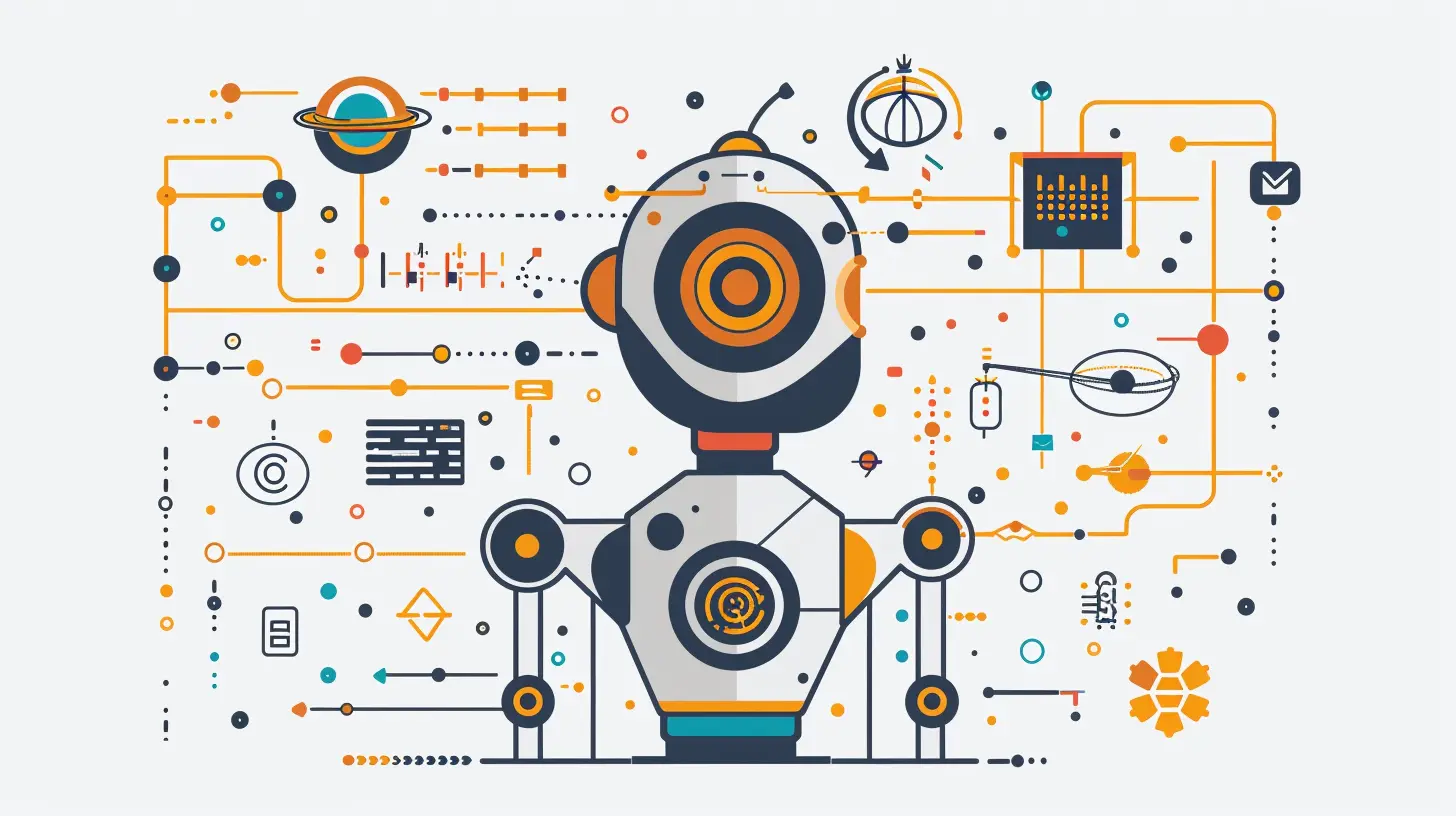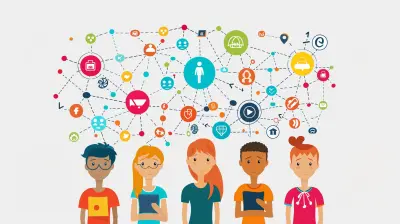The Pros and Cons of AI-Driven Grading Systems in Education
14 April 2025
Artificial intelligence (AI) is shaking up the education system in ways we never imagined. From personalized learning to smart tutoring, AI is making classrooms more efficient. But one of the hottest debates in education right now? AI-driven grading systems.
Some see it as a game-changer, eliminating bias and saving time. Others fear it could lead to unfair evaluations and take away the human touch from grading. So, is AI grading a blessing or a curse for education? Let’s dive deep into the pros and cons of AI-driven grading systems.

What Are AI-Driven Grading Systems?
Before we jump into the advantages and disadvantages, let's clarify what we mean by AI-driven grading systems.AI-driven grading systems use machine learning algorithms and natural language processing (NLP) to evaluate student work. These systems analyze patterns, assess grammar, structure, and even logic in essays, quizzes, and assignments. Some platforms even provide instant feedback, helping students improve their work in real-time.
Sounds impressive, right? But, as with any technology, there are two sides to the coin. 
The Pros of AI-Driven Grading Systems
1. Saves Educators Time
Teachers have a never-ending to-do list. Between lesson planning, parent meetings, and grading piles of assignments, it’s overwhelming. AI-driven grading systems can help by handling multiple-choice tests, short answers, and even essays.Instead of spending hours poring over papers, teachers can focus on improving lesson plans, mentoring students, and providing personalized support. After all, wouldn’t it be great if teachers had more time to actually teach rather than just grade?
2. Eliminates Human Bias
Let's be honest—grading is rarely 100% objective. Teachers, being human, can have unconscious biases. Maybe they’re more lenient towards certain students or unknowingly grade based on handwriting, tone, or even their mood that day.AI doesn't have bad days or play favorites. It follows a set algorithm, ensuring every assignment is judged based on the same criteria. This can lead to fairer, more consistent grading.
3. Faster Feedback for Students
Imagine submitting an essay and getting feedback instantly. That’s possible with AI-powered grading.Students no longer have to wait days or even weeks to know how they performed. Immediate feedback helps them identify mistakes and improve quickly, making the learning process more dynamic and effective.
4. Scalability for Large Classes
In large classrooms, grading can be a nightmare. A single teacher grading 100+ assignments manually is exhausting. AI-driven grading can handle thousands of papers in minutes, making it ideal for universities, online courses, and even standardized tests.5. Reduces Teacher Burnout
Teacher burnout is real. Having to grade for hours after school can sap a teacher’s energy and passion. By offloading repetitive grading tasks to AI, teachers get more breathing room. Less stress means more engaged, effective educators.
The Cons of AI-Driven Grading Systems
1. Lack of Human Understanding
AI is smart, but it isn’t human. It can evaluate sentence structure, grammar, and even logic to some extent, but it struggles with creativity, humor, and nuanced arguments.For example, an AI system might penalize a student for using unconventional phrasing even if their argument is brilliant. In subjects like literature or philosophy, where interpretation matters, AI grading may fall short.
2. Potential for Errors and Bias in AI Models
Wait—didn’t we say AI eliminates bias? Yes, but only if programmed correctly. AI systems learn from datasets, and if those datasets contain bias, the AI inherits them.For instance, if an AI grading system is trained on a limited dataset with specific language preferences, it might unfairly penalize students from diverse backgrounds or those who write in a different style.
3. Students Might Game the System
Students are smart. If they figure out how the AI grading system works, they might tailor their responses to “please” the algorithm rather than truly understand the material.For instance, some AI systems prioritize sentence length and vocabulary complexity. This means a student can throw in fancy words and long sentences without actually making a strong argument, tricking the system into giving them a higher grade.
4. Technical Issues and Glitches
No system is perfect. AI grading tools rely on complex algorithms, and sometimes, things go wrong. A minor glitch can lead to incorrect grading, causing confusion and frustration among students and teachers.What if the AI misunderstands the question? Or misinterprets an essay? A single software error could unfairly impact a student’s performance.
5. Loss of Teacher-Student Interaction
Feedback from a teacher isn’t just about marks—it’s about learning and growth. When teachers grade assignments, they provide personalized feedback, motivation, and guidance. AI lacks this human connection.A well-written comment from a teacher can inspire a student to improve. Can AI truly replace that? Probably not. 
Finding the Balance: AI + Humans
So, does this mean we should ditch AI grading altogether? Not necessarily. The best approach is a hybrid model—letting AI handle the repetitive, objective tasks while teachers focus on deeper evaluation and personalized feedback.For instance, AI can grade multiple-choice questions instantly, while teachers review essays for depth and originality. This way, educators still have control while benefiting from AI's speed and efficiency.
AI should complement teachers, not replace them. After all, at its core, education is about connection, creativity, and critical thinking—things that machines still struggle to understand.
Final Thoughts
AI-driven grading systems are a powerful tool, but they come with their own set of challenges. While they save time, reduce bias, and provide instant feedback, they also lack true human understanding and can be prone to algorithmic bias.The key? Balance. AI can be a fantastic assistant, but education will always need the human touch. Teachers aren't just graders—they're mentors, motivators, and role models. And no AI can ever replace that.
### What do you think? Should AI take over grading, or should teachers remain in full control? Drop your thoughts in the comments below!
all images in this post were generated using AI tools
Category:
Educational TechnologyAuthor:

Zoe McKay
Discussion
rate this article
6 comments
Scarlett McHugh
AI-driven grading can enhance efficiency and objectivity, but concerns about fairness and depth of evaluation persist.
May 1, 2025 at 10:34 AM

Zoe McKay
Thank you for your comment! While AI can improve efficiency and objectivity, we must address fairness and ensure that evaluations capture the depth of student understanding. Balancing these aspects is crucial for effective implementation.
Rowan Cole
In the dance of grades, AI takes the lead, With precision and speed, yet lacks human heed. A balance we seek, both heart and machine, In learning’s embrace, let wisdom convene.
April 25, 2025 at 3:24 AM

Zoe McKay
Thank you for your thoughtful reflection! Striking a balance between AI efficiency and human insight is indeed crucial for effective education.
Maren McCabe
AI-driven grading systems offer efficiency and objectivity, yet they risk undermining the nuanced understanding of student potential and creativity. While they can streamline assessment, reliance on algorithms may overlook the human qualities that define learning, prompting a need for balance between technological advancement and the essence of education.
April 23, 2025 at 7:45 PM

Zoe McKay
You're right; while AI grading enhances efficiency, it’s crucial to maintain human oversight to ensure that we recognize and nurture the unique qualities of each student. Balancing technology and personal insight is essential for truly effective education.
Kassidy Lee
This article raises fascinating points about AI-driven grading systems! I'm intrigued by the potential for efficiency and objectivity in assessments, yet I wonder about the nuances of creativity and individual learning styles. How do we balance technology with personalized education?
April 22, 2025 at 11:57 AM

Zoe McKay
Thank you for your thoughtful comment! Balancing AI efficiency with personalized education is crucial. We can enhance AI systems by integrating adaptive learning technologies that recognize individual student needs, ensuring creativity and diverse learning styles are nurtured alongside objective assessments.
Zelda Luna
Great insights! AI-driven grading can enhance learning, but we must balance it with human touch.
April 19, 2025 at 2:53 AM

Zoe McKay
Thank you! I completely agree—integrating AI with human oversight is crucial for a holistic educational experience.
Layne Estes
AI grading: the robotic teacher's pet! It may be quick and precise, but watch out for the occasional existential crisis when an algorithm confuses Shakespeare with a pizza menu. 🤖🍕 #AIinEducation
April 15, 2025 at 6:46 PM

Zoe McKay
Great point! While AI grading offers efficiency, it’s crucial to ensure it understands context to avoid humorous yet troubling mix-ups. Balancing tech and human oversight is key.




